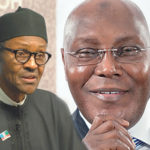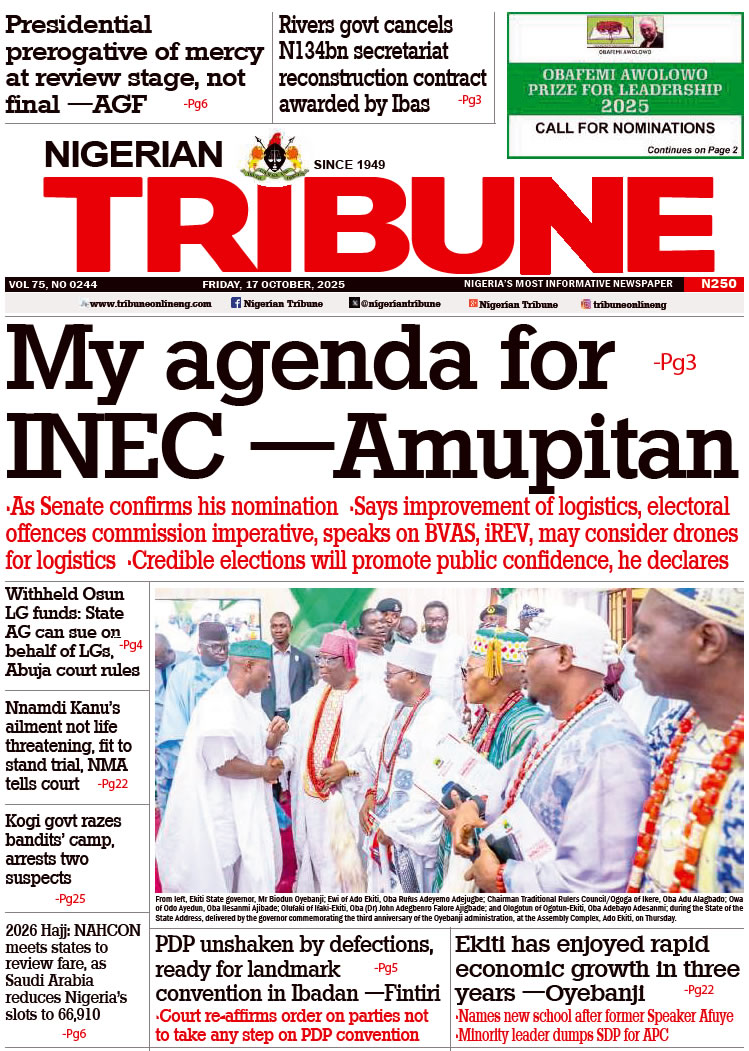
I urge readers to note the expression, “trooping out in large numbers.” There is no problem with the chunk “trooping out.” It is idiomatic and appropriate. The only problem has to do with the last part of the expression: “in large numbers.” That expression is redundant in that the idea of “large numbers” is already contained in “trooping out.” People may come out in large numbers; they cannot be said to troop out in large numbers.
The happy thing about the reporter’s choice of the expression “trooping out” (minus “in large numbers”) is that he has not selected the form “troupe” which some Nigerian users sometimes confuse with “troop”. Let’s seize this opportunity to refresh our knowledge of these two words: troop and troupe.
It is interesting that the two words, troop and troupe, have identical pronunciation. But apart from being spelt differently, they are as far apart semantically as any two words can be.
Now, the noun troupe is used to denote a group of actors, dancers or singers who perform together, moving from one place to the other. Please read the following sentences: 1) Led by a veteran musician, dynamic and entertaining, the troupe treated us to a thrilling performance that I had never seen in the last two decades. 2) In spite of its great performaces, the troupe always faces the problem of insufficient funding. 3) As the leader of our school’s cultural troupe, it was my duty to ensure that every performance was successfully carried out. 4) As a Youth Corps member, I organized a cultural troupe for the school where I carried out my primary assignment, a troupe, I’m told, is still active till today. 5) The dancing troupe is made up of ladies only as dancers and men as drummers. 6) The NTA troupe performs only during festive seasons. 7) A cultural troupe, formed, funded, and encouraged by the palace, is being arranged to entertain the guests. 8) The national troupe is very versatile, capable of entertaining guests with a medley of performances reflecting the diversity of the Nigerian cultures. 9) As a burgeoning group, the first performance of the troupe was at the National Theatre. 10) After about five performances, the troupe lost focus, became weak and died.
As we have noted, the verb form of the word troupe is very rare except in its very technical or professional sense. Here are examples of its usage in the verb form: 1) Hubert Ogunde was said to have trouped his plays to such distant places as the northern Nigeria. 2) The pioneer travelling actors like Oyin Adejobi trouped their performances all over the country, not because of the money they made from the performances, but because of the fulfilment they gave them. 3) To troupe plays requires considerable effort and dedication.
The word troop basically denotes a group of soldiers. It can be used in its singular or plural form. Let’s read the following sentences: 1)The Federal Government has deployed troops in the troubled states of the North East of Nigeria. 2) Now that peace is returning to the war-torn country, the foreign troops are being withdrawn. 3) The troops are on their way to Somalia on a peace-keeping mission. 4) Brigadier Taiye Ojopagogo is leading a troop to the zone to assist in quelling the civil unrest that is beyond the capacity of the police. 5) Member nations of the African Union have agreed to contribute troops towards restoring peace to a region that has been ravaged by war. 6) During the civil war, the Federal troops were said to have committed all sorts of atrocities, including rapes. 7) The troops were weakened by the activities of moles and deserters. 8) In disarray, the troops retreated and requested for reinforcement.
We have used the word troop as a noun in each of those sentences, and the sense has been that of soldiers in or ready for action.
But the noun can also refer to a group of people, non-soldiers moving to a place. Now read the following sentences: 1)We met a troop of young boys poaching animals and having fun. 2) There they were, a troop of angry, tired and frustrated retirees, seeking sympathy and justice. 3) We were distracted by the chatter of a troop of schoolchildren on their way to the football field. 4) It all happened in the middle of the dry season when troops of women went to distant places in search of water. 5) The advertisement displayed in front of the building attracted a troop of job seekers, anxious and desperate, shouting themselves hoarse. 6) We saw a troop of tenants marching to the police station to report the misconduct of their landlord. 7) A troop of militant students blocked the road, protesting the lack of electricity.
Each of the seven sentences demonstrates the usage of the noun troop in its figurative sense. But the figurative sense can also be used in the verb form. Let’s consider the following sentences: 1) The villagers trooped out to see the white men who were visiting the palace. 2) Almost the entire town trooped out to welcome the president. 3) After the football match, spectators trooped into streets, leading to a terrible traffic jam. 4) The masses have been advised to troop out on the day of the election and vote for the candidate of their choice. 5) I expect the box office takings to be in hundreds of thousands in view of the rate at which spectators trooped into the cinema. 6) In those days when public execution of armed robbers was common, members of the public could be seen trooping out to watch the gory sights. 7) Following the series of armed robbery attacks, members trooped into the meeting called to discuss security issues. 8) It was the closing time and students trooped out of the school compound.
Sample 2: “And for Senator Misau, his face off with the presidency and the police are the likely reasons he felt uncomfortable within the ruling party and had to seek refuge elsewhere.”(2o19: State of APC (1), The Nation, 29 July, 2018)
We note the plural verb-form (are) occurring immediately after the word police in the following structure: “his face off with the presidency and the police are the likely reasons.” My reading of the sentence is that the word face off is the subject of the verb. Given the fact that that noun is singular, the verb is expected to be singular as well. But the writer, quoting a source, offers the plural form of the verb. The structure, in view of the fact that it uses the plural form of the verb (are) and presents the noun reasons in its plural form, gives the misleading and unconvincing impression that the items “the presidency” and “the police” together constitute the subject of the verb. That must have accounted for the choice of the plural form of the verb. The logic of this sentence does not support that notion. The verb-form should be changed to its singular form (is) in consistency with the singular form of the relevant noun (face off). Otherwise, the sentence should be restructured.
WATCH TOP VIDEOS FROM NIGERIAN TRIBUNE TV
- Relationship Hangout: Public vs Private Proposals – Which Truly Wins in Love?
- “No” Is a Complete Sentence: Why You Should Stop Feeling Guilty
- Relationship Hangout: Friendship Talk 2025 – How to Be a Good Friend & Big Questions on Friendship
- Police Overpower Armed Robbers in Ibadan After Fierce Struggle





